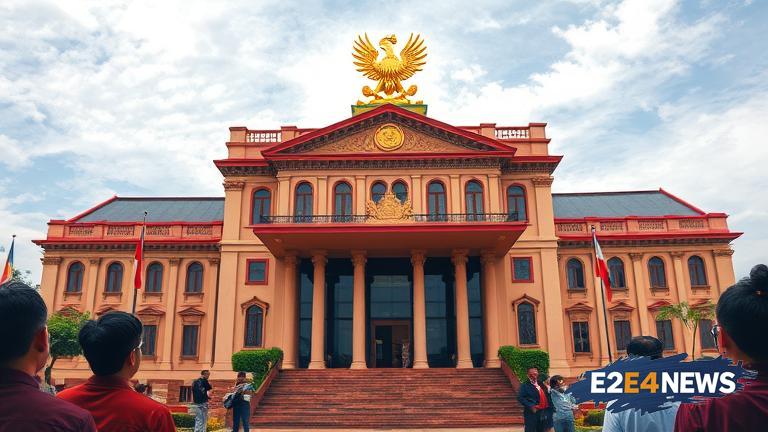The Philippine House of Representatives has announced its plan to appeal the Supreme Court’s ruling on the impeachment case against Vice President Sara Duterte. The move comes after the high court issued a decision that has been perceived as a setback for the impeachment proceedings. The House of Representatives has expressed concerns over the court’s jurisdiction in the case, arguing that the impeachment process is a constitutional power vested in the legislative branch. The lawmakers also raised questions about the potential implications of the ruling on the country’s political landscape, particularly with regards to the balance of power between the different branches of government. The impeachment case against Vice President Duterte was filed earlier this year, with the complainants alleging that she had committed acts that were deemed impeachable offenses. The case has been highly politicized, with many seeing it as a test of the administration’s strength and a potential precursor to the 2028 presidential elections. The Supreme Court’s ruling has been seen as a major blow to the impeachment efforts, with many of the complainants expressing disappointment and frustration over the decision. The House of Representatives has vowed to continue pursuing the impeachment case, despite the setback. The appeal is expected to be filed in the coming days, with the House of Representatives seeking a reversal of the Supreme Court’s ruling. The case is widely seen as a critical test of the country’s democratic institutions and the rule of law. The Philippine Constitution grants the House of Representatives the power to impeach high-ranking officials, including the Vice President. The impeachment process is a complex and contentious one, with many legal and political hurdles to overcome. The case against Vice President Duterte has been highly divisive, with many Filipinos expressing strong opinions on the matter. The international community has also been watching the case closely, with many seeing it as a key indicator of the country’s commitment to democratic values and the rule of law. The Philippine government has faced criticism in recent years over its human rights record and its handling of corruption cases. The impeachment case against Vice President Duterte has been seen as a major test of the government’s willingness to hold high-ranking officials accountable for their actions. The House of Representatives has argued that the impeachment case is necessary to ensure that those in power are held accountable for their actions. The case has also raised questions about the role of the judiciary in the country’s political landscape. The Supreme Court’s ruling has been seen as a major intervention in the political process, with many arguing that it has undermined the authority of the legislative branch. The appeal is expected to be a highly contentious and closely watched case, with many seeing it as a critical test of the country’s democratic institutions. The Philippine people are eagerly awaiting the outcome of the appeal, with many hoping that it will provide clarity and closure on the impeachment case. The case has been a major source of controversy and debate in the country, with many Filipinos expressing strong opinions on the matter. The international community is also watching the case closely, with many seeing it as a key indicator of the country’s commitment to democratic values and the rule of law.
